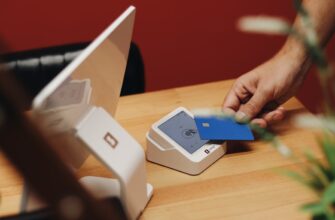Why Buy Bitcoin with a Credit Card?
Purchasing Bitcoin with a credit card offers unmatched speed and convenience. Unlike bank transfers that take days, credit card transactions are instant, letting you capitalize on market opportunities immediately. This method is ideal for beginners seeking simplicity—no complex wallet setups or lengthy verifications. Plus, many credit cards offer rewards like cashback or travel points on crypto purchases, adding extra value. However, be mindful of higher fees and potential cash advance charges from your card issuer.
Step-by-Step Guide: How to Buy Bitcoin Using a Credit Card
- Choose a Reputable Exchange: Select platforms like Coinbase, Binance, or eToro that accept credit cards and comply with local regulations.
- Create & Verify Your Account: Sign up with your email, phone number, and ID. Verification typically takes minutes.
- Add Your Credit Card: Navigate to payment methods and enter your card details (number, expiry date, CVV).
- Enable Two-Factor Authentication (2FA): Secure your account with an authenticator app or SMS codes.
- Place Your Order: Enter the Bitcoin amount or USD value, review fees, and confirm the transaction.
- Transfer to a Wallet: Move your Bitcoin to a private hardware or software wallet for enhanced security.
Top Platforms to Buy Bitcoin with a Credit Card
- Coinbase: User-friendly interface, ideal for beginners. Fees: 3.99% per transaction.
- Binance: Low fees (0.1%–2%), supports 100+ cryptos. Requires advanced verification.
- eToro: Social trading features. Fees include spread markups (1%–2%).
- Kraken: Robust security. Credit card fees: 3.75% + €0.25.
- CEX.IO: Instant purchases. Fees vary by region (up to 7%).
Fees and Limits to Consider
Credit card Bitcoin purchases incur higher costs than bank transfers. Expect:
- Processing Fees: 3%–7% charged by exchanges.
- Cash Advance Fees: Up to 5% from card issuers, plus higher APR.
- Daily/Lifetime Limits: Exchanges often cap purchases at $1,000–$20,000 daily.
- Foreign Transaction Fees: Up to 3% if the exchange operates overseas.
Tip: Contact your card issuer beforehand to clarify fees and avoid surprises.
Risks and How to Mitigate Them
While convenient, credit card Bitcoin buying carries unique risks:
- High Volatility: Bitcoin’s price can swing rapidly. Mitigation: Only invest what you can afford to lose.
- Security Threats: Exchanges face hacking risks. Mitigation: Use platforms with cold storage and insurance.
- Debt Accumulation: High-interest rates amplify losses. Mitigation: Pay off balances immediately.
- Scams: Fake exchanges or phishing sites. Mitigation: Verify platform URLs and enable 2FA.
Alternatives to Buying Bitcoin with a Credit Card
If credit card fees deter you, consider:
- Debit Cards: Lower fees, no interest, but similar purchase limits.
- Bank Transfers (ACH/SEPA): Fees under 1%, though slower (1–3 days).
- Peer-to-Peer (P2P) Exchanges: Direct trades with flexible payments (e.g., LocalBitcoins).
- Bitcoin ATMs: Instant cash purchases, but fees exceed 10%.
Frequently Asked Questions (FAQ)
1. Is buying Bitcoin with a credit card legal?
Yes, in most countries, including the US, UK, and EU. Always check local regulations.
2. Can I earn credit card rewards on Bitcoin purchases?
Often yes, but some issuers classify crypto buys as cash advances (no rewards). Confirm with your provider.
3. Why was my credit card declined?
Common reasons include: issuer crypto restrictions, insufficient limits, or failed security checks. Contact your bank.
4. How quickly do I receive Bitcoin?
Instantly after payment confirmation, though wallet transfers may take 10–30 minutes.
5. Are prepaid cards an option?
Rarely. Most exchanges reject them due to anti-fraud policies. Use debit/credit cards instead.








